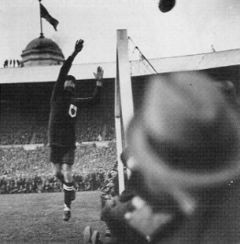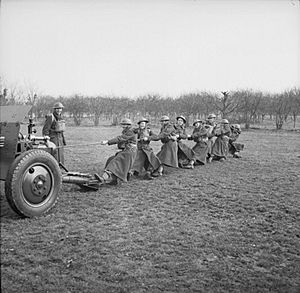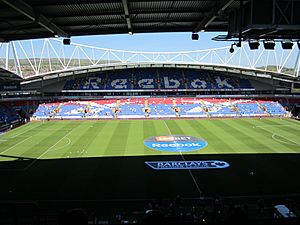Bolton Wanderers F.C. facts for kids
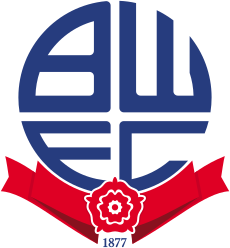 |
|||
| Full name | Bolton Wanderers Football Club | ||
|---|---|---|---|
| Nickname(s) |
|
||
| Founded | 1874 (as Christ Church F.C.) | ||
| Ground | Toughsheet Community Stadium | ||
| Capacity | 28,723 | ||
| Owner | Football Ventures (Whites) Ltd (92%) British Business Bank (8%) |
||
| Chairman | Sharon Brittan | ||
| Head coach | Steven Schumacher | ||
| League | League One | ||
| 2018–19 | Championship, 23rd of 24 (relegated) | ||
|
|
|||
Bolton Wanderers Football Club, often called 'The Trotters', is a professional football team from Horwich, England. They play in League One, which is the third level of English football.
The club started in 1874 and was one of the first teams to join the Football League in 1888. Bolton has won the FA Cup four times: in 1923, 1926, 1929, and 1958. They also won the Second Division title in 1909, 1978, and 1997.
After some ups and downs, including dropping to the fourth tier in 1987, Bolton worked their way back up. They reached the Premier League in 1995 and again in 2001, staying there for eleven seasons. During this time, they made it to the League Cup final in 2004 and played in the UEFA Cup twice.
More recently, the club faced financial problems and was relegated to League One in 2016. They earned promotion back to the Championship in 2017 but were relegated again in 2019. After a tough period, new owners took over. Bolton was relegated to the fourth tier in 2020 but quickly won promotion back to League One in the 2020–21 season. They also won the EFL Trophy in 2023.
Since 1997, Bolton has played their home games at the Toughsheet Community Stadium. Before that, they played at Burnden Park from 1895 to 1997. Bolton holds the record for spending the most seasons in the top flight without ever winning the league title.
Club History: From the Start to Now
How Bolton Wanderers Began (1874–1929)
The club was started in 1874 by Reverend Joseph Farrall Wright and schoolmaster Thomas Ogden. It was first called Christ Church F.C. and was linked to a church in Bolton. In 1877, the club changed its name to Bolton Wanderers. They chose 'Wanderers' because they had trouble finding a permanent place to play in their early years.
Bolton was one of the 12 founding teams of the Football League in 1888. At that time, the Lancashire area was very strong in football. Bolton has spent more time in the top division of English football than out of it.
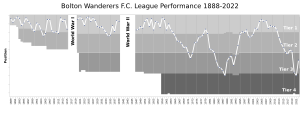
In 1894, Bolton reached the FA Cup final for the first time but lost to Notts County. Ten years later, in 1904, they were runners-up again, losing to local rivals Manchester City.
The years around the First World War were a very successful time for Bolton in the league. They often finished in the top eight of the First Division. In 1921 and 1925, they finished third, almost winning the league title in 1925.
On April 28, 1923, Bolton won their first major trophy. They beat West Ham United 2–0 in the first-ever FA Cup final played at the original Wembley Stadium. This match is famously known as 'The White Horse Final' because a police officer on a white horse helped control the huge crowd. Bolton's player, David Jack, scored the very first goal at Wembley Stadium.
Bolton became the most successful cup team of the 1920s, winning the FA Cup three times. They won again in 1926, beating Manchester City 1–0. Their third win came in 1929, when they defeated Portsmouth 2–0.
In 1928, the club faced money problems and had to sell David Jack to Arsenal. The fee of £10,890 was a world record for a player transfer at the time.
Golden Era and Cup Wins (1929–1958)
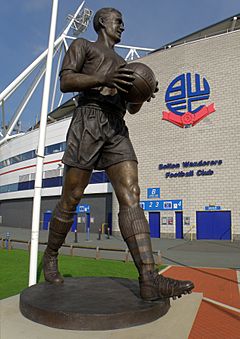
From 1935 to 1964, Bolton stayed in the top division without interruption. Fans remember this as a golden era, especially in the 1950s with star player Nat Lofthouse. During World War II, many Bolton players, including their captain Harry Goslin, joined the army. This was unusual for top athletes at the time. Sadly, Goslin was killed in Italy in 1943.
On March 9, 1946, a terrible event happened at the club's home ground, Burnden Park. The Burnden Park disaster was the worst football tragedy in British history at the time. 33 Bolton fans died and 400 were injured during an FA Cup match against Stoke City. Around 67,000 people were crammed into the stadium, which was far too many. This disaster led to new rules for controlling crowd sizes at football matches.
In 1953, Bolton played in another famous FA Cup final, known as 'The Stanley Matthews final'. They lost 4–3 to Blackpool, even though they had been leading 3–1.
Bolton Wanderers have not won a major trophy since 1958. In that year, two goals from Nat Lofthouse helped them beat Manchester United in the FA Cup final at Wembley. Since then, the closest they have come to winning a major trophy was being runners-up in the League Cup in 1995 and 2004.
Challenges and Comebacks (1958–1995)
After 1958, Bolton had a difficult period. They were relegated to the Second Division in 1964 and then to the Third Division for the first time in 1971. However, they won the Third Division title in 1973 and the Second Division title in 1978, returning to the top flight. But they were relegated again soon after.
By 1987, Bolton had dropped to the Fourth Division, the lowest tier in their history. But they quickly won promotion back to the Third Division in 1988. In 1989, they won the Sherpa Van Trophy, beating Torquay United 4–1.
In the early 1990s, Bolton became known as 'giant-killers' in cup competitions. In 1993, they famously beat FA Cup holders Liverpool 2–0. They also defeated other higher-division teams. That same year, Bolton won promotion to the second tier. In 1994, they again beat the FA Cup holders, Arsenal, and reached the quarter-finals.
Back to the Top and European Adventures (1995–2012)
Bolton reached the Premier League in 1995 after a thrilling 4–3 win against Reading in the play-off final. In the same year, they reached the League Cup final but lost to Liverpool. They were relegated from the Premier League in 1996.
The club quickly won promotion back to the Premier League in 1997, scoring 100 goals and earning 98 points to win the Division One championship. This season also marked the club's move from Burnden Park to the new Reebok Stadium.
Bolton was relegated again in 1998 on goal difference. In 1999, they reached the Division One play-off final but lost to Watford. In 2000, they had a strong cup run, reaching the semi-finals of the FA Cup and League Cup, but lost both.
In 2001, Bolton was promoted back to the Premier League after beating Preston North End 3–0 in the play-off final. They then spent eleven seasons in the Premier League.
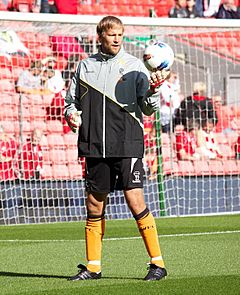
The 2001–02 season started with a big 5–0 win against Leicester. Bolton even went to the top of the league table for the first time since 1891. They managed to stay in the Premier League that season and the next.
In 2004, Bolton reached the League Cup final but lost 2–1 to Middlesbrough. However, they finished eighth in the league, their highest Premier League finish at that time.
In 2005, Bolton finished sixth in the league, which meant they qualified for the UEFA Cup for the first time ever. The next season, they reached the last 32 of the UEFA Cup. Between 2003 and 2007, Bolton consistently finished in the top eight, a great achievement for the club.
Manager Sam Allardyce left the club in 2007. Bolton survived in the Premier League in 2008, finishing 16th. They also had another good run in the UEFA Cup, drawing with Bayern Munich and beating Atlético Madrid.
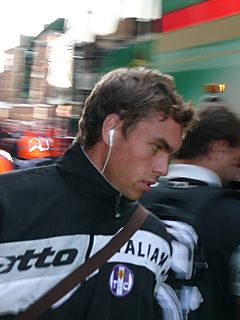
In 2008, Bolton broke their transfer record by signing Johan Elmander for about £8.2 million. Manager Gary Megson was replaced by former player Owen Coyle in 2010. In the 2010–11 FA Cup, Bolton reached the semi-finals but lost 5–0 to Stoke.
The 2011–12 season was tough. On March 17, 2012, player Fabrice Muamba suffered a cardiac arrest during an FA Cup match. Manager Owen Coyle was praised for how he handled this difficult time. On the final day of the season, Bolton was relegated to the Championship after drawing 2–2 with Stoke City.
Financial Struggles and New Beginnings (2012–Present)
Bolton struggled in the Championship and Owen Coyle was replaced by Dougie Freedman in October 2012. They finished seventh that season, just missing out on a play-off spot. Freedman was later replaced by Neil Lennon in 2014.
In December 2015, Bolton faced serious financial problems, with debts of £172.9 million. They were given a winding-up petition for unpaid taxes. Much of this debt was later written off by former owner Eddie Davies to help the club find new owners.
In March 2016, a group led by Dean Holdsworth bought the club. However, financial difficulties continued. On April 9, 2016, Bolton was relegated to the third tier for the first time since 1993.
Under new manager Phil Parkinson, Bolton won promotion back to the Championship in 2017, finishing second in League One. They avoided relegation from the Championship on the final day of the 2017–18 season with a dramatic 3–2 win against Nottingham Forest.
The 2018–19 season was full of financial troubles. The club faced several winding-up orders and players went unpaid. A match against Brentford was even called off because the players refused to play due to unpaid wages. Bolton was relegated to League One in April 2019.
In May 2019, the club went into administration due to an unpaid tax bill, which meant they started the 2019–20 season with a 12-point penalty. Players and staff went unpaid for months. Manager Phil Parkinson resigned in August 2019.
On August 28, 2019, the club was finally sold to Football Ventures (Whites) Limited, saving it from possible closure. Keith Hill became the new manager. Bolton started to rebuild, and on June 9, 2020, they were relegated to the fourth tier due to the season ending early because of the COVID-19 pandemic.
Barrow manager Ian Evatt took over on July 1, 2020. Despite a tough start, Bolton had an amazing turnaround in the 2020–21 League Two season. They finished third and won automatic promotion back to League One. In January 2022, it was confirmed that the British Business Bank, a government-backed bank, now owns about 8% of the club's shares after an emergency loan was converted.
On April 2, 2023, Bolton won the 2023 EFL Trophy final with a 4–0 victory over Plymouth Argyle. In May 2024, Evatt led them to the 2024 EFL League One play-off final, but they lost 2–0 to Oxford United. Ian Evatt left the club in January 2025 and Steven Schumacher became the new head coach.
Team Colours and Badge
Bolton Wanderers' home kit is white shirts with navy and red details, usually worn with navy shorts and white socks. Their away kits have changed over the years, often being navy or yellow.
The club didn't always wear white. In 1884, they wore white shirts with red spots, which gave them the nickname "The Spots". The traditional navy blue shorts were removed in 2003 for an all-white kit but returned in 2008.
The Bolton Wanderers club badge shows the club's initials (BWFC) shaped like a ball, with a red scroll and a Lancashire rose underneath. The current badge is a modern version of one from 1975. Fans were happy when the red rose returned to the badge. The club's original badge featured the town crest of Bolton, which included an Elephant and Castle design. This design has sometimes appeared on the back of recent club shirts.
The club's nickname, "The Trotters", has a few possible origins. Some say it's just a different way of saying "Wanderers". Others believe it's an old local term for someone who likes to joke around. Another story says that one of their early grounds was next to a pig farm, and players had to "trot" through pig pens to get the ball if it went over the fence!
Home Grounds: Where Bolton Plays
When the club first started, they played at different places. In 1881, they began playing regularly at Pike's Lane. They spent 14 years there before moving to Burnden Park.
Burnden Park was Bolton's home for 102 years. It was located about a mile from Bolton town centre. In its busiest times, it could hold up to 70,000 fans. However, its capacity was reduced over the years. In 1986, part of the stadium was sold to make way for a new supermarket.
By 1992, the club decided they needed a new stadium. Rules required top clubs to have all-seater stadiums, and it was hard to update Burnden Park. They chose to build a new stadium in Horwich, about 5 miles west of the town centre.
The new stadium opened in August 1997. It is a modern, all-seater stadium that can hold around 29,000 fans. It stands on "Burnden Way" to remember the old ground. It was first called the Reebok Stadium because of a sponsorship deal with the sports company Reebok. This name was not popular with all fans at first, but people got used to it.
In April 2014, the stadium was renamed the Macron Stadium as part of a deal with Macron sportswear. In August 2018, it was renamed the University of Bolton Stadium. In 2023, it was renamed again to the Toughsheet Community Stadium, after a local company.
Club Officials
Bolton Wanderers Football & Athletic Co Management
| Role | Name |
|---|---|
| Chairman | Sharon Brittan |
| Sporting Director | Fergal Harkin |
| Head of Recruitment | Jimmy Dickinson |
| Head Coach | Steven Schumacher |
| Assistant Head Coach | Richie Kyle |
| Assistant Coach | Mark Hughes |
| Goalkeeping Coach | Owain Fôn Williams |
| B Team Head Coach | Andy Taylor |
| B Team Coach | Andrew Tutte |
| Head of Academy | Dave Gardiner |
| U-18 Coach | Julian Darby |
| Academy Goalkeeping Coach | Andy Fairman |
| Head Physiotherapist | Matt Barrass |
| First Team Physiotherapist | Steve Blakeley |
| Academy Physiotherapists | Dave Newbold Matt Pearce |
| Head of Sport Science | Paul Walsh |
| First Team Strength & Conditioning Coaches | Jack Inman Matt Pelham |
| Sports Therapist | Matt Donnelly |
| Head Kitman | Craig Rowson |
| Assistant Kitman | Brett Ormerod |
| First Team Analyst | Harry Taylor |
| Academy Analyst | Matt Stephens |
Club Honours: Trophies and Achievements
League Titles
- Second Division / First Division (level 2)
- Champions: 1908–09, 1977–78, 1996–97
- Promoted (2nd place): 1899–1900, 1904–05, 1910–11, 1934–35
- Play-off winners: 1995, 2001
- Third Division / Football League Second Division / League One (level 3)
- Champions: 1972–73
- Promoted (2nd place): 1992–93, 2016–17
- Fourth Division / League Two (level 4)
- Promoted (3rd place): 1987–88, 2020–21
Cup Wins
- FA Cup
- Winners: 1922–23, 1925–26, 1928–29, 1957–58
- Runners-up: 1893–94, 1903–04, 1952–53
- Football League Cup
- Runners-up: 1994–95, 2003–04
- FA Charity Shield
- Winners: 1958
- Associate Members' Cup / EFL Trophy
- Winners: 1988–89, 2022–23
- Runners-up: 1985–86
- Football League War Cup
- Winners: 1945
See also
 In Spanish: Bolton Wanderers Football Club para niños
In Spanish: Bolton Wanderers Football Club para niños
 | Mary Eliza Mahoney |
 | Susie King Taylor |
 | Ida Gray |
 | Eliza Ann Grier |


